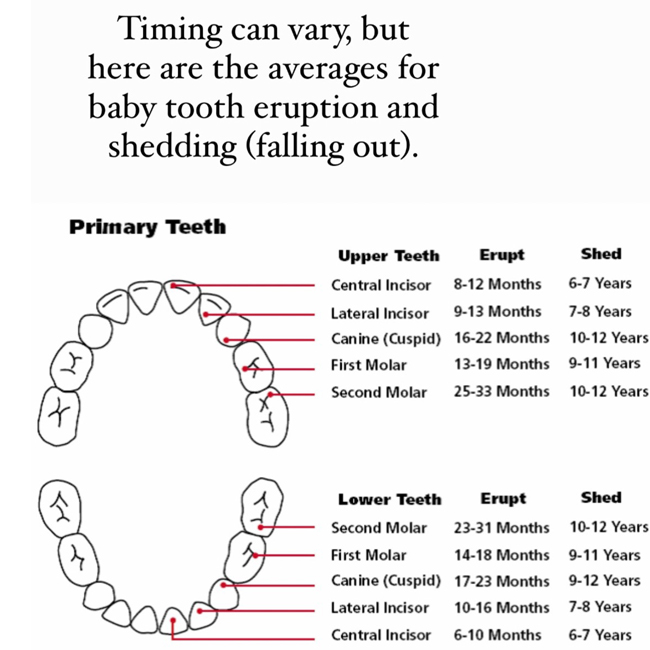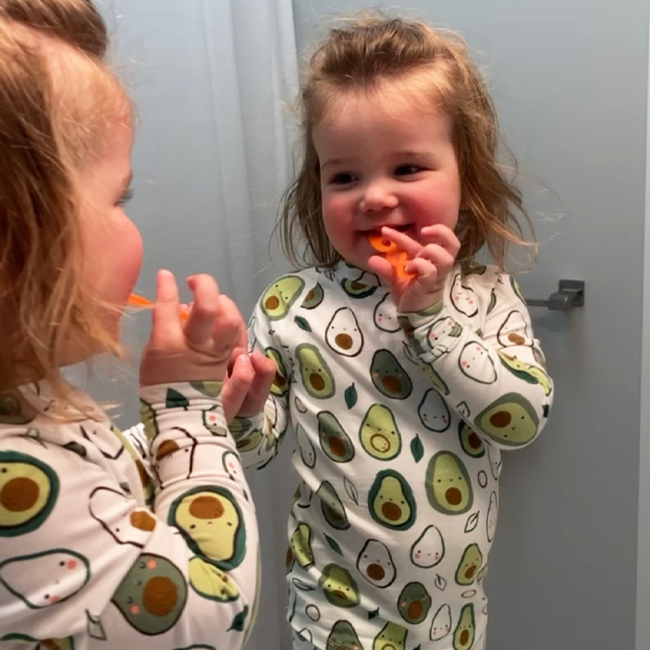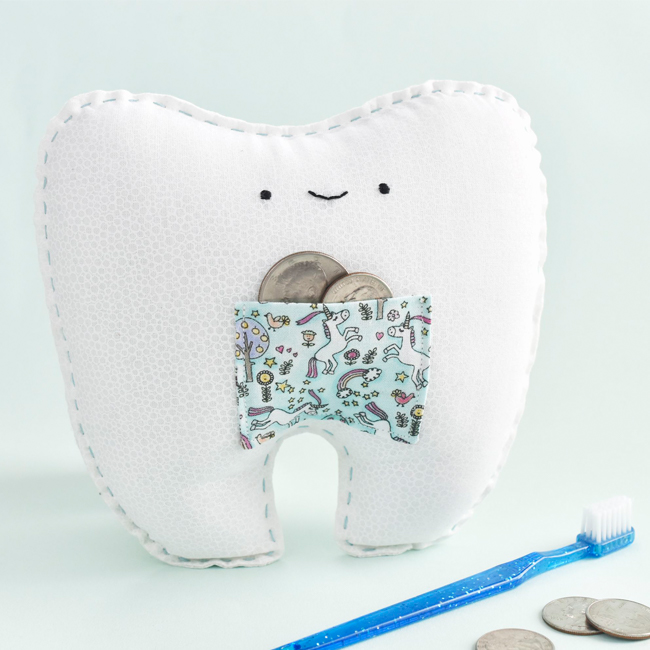I haven’t experienced my child losing her baby teeth yet, so who better to have on to talk about this topic than the dental expert herself, Dr. Ashley! Here she is…

Your child works so hard growing all those baby teeth (teething for what seems like months on end), and then all of a sudden, those baby teeth are ready to fall out! Around age 6, children start to get their first wiggly tooth (this is an average; it may be earlier or later. Often if your child got teeth earlier as a baby, they will lose teeth earlier, and vice versa).
Even though baby teeth fall out, they are still SO important to keep clean and healthy.
Why are Baby Teeth Important?
- baby teeth hold space for adult teeth and help guide adult teeth into proper position
- baby teeth assist in eating and chewing
- baby teeth are important for smiling, facial development, and a child’s self-confidence
- healthy teeth (and oral health) are important for overall health. If a child has decayed baby teeth, this can cause pain and infection
Remember to brush baby teeth twice a day and floss once a day.
Losing Baby Teeth

A baby tooth becomes loose when the adult tooth starts to push it out of its socket. If a baby tooth is loose, make sure it is near the average time to be loose. Always rule out a loose tooth from a fall!
[If you’re child loses a tooth from a fall, follow these steps:
1. If it’s an adult tooth, clean tooth gently and quickly, and replant tooth immediately into socket and call your dentist.
2. If it’s a baby tooth, comfort child and check for signs of concussion and/or open wounds. Rinse your child’s mouth with water, have child bite on a piece of gauze, and phone dental office. Do not replace a baby tooth.]
Try to let a loose tooth shed on it’s own. The child can use their tongue to wiggle tooth back and fourth. Discourage hands in the mouth to wiggle teeth, or ensure they are washing hands often.
Sometimes adult teeth erupt behind the baby teeth. If this happens and the baby tooth is NOT very loose, see a dentist. If the tooth is causing discomfort (or child really wants it out), take a clean tissue, wrap around tooth and squeeze hard. If it’s ready, it will pop out with no more than a gentle twist!
If the tooth is not coming out, try to let tooth shed naturally.
How to Help with Loose Tooth Discomfort
- soft food diet
- cold foods
- cold compress
- pain relief medication, if needed
What to Expect After a Tooth Falls Out
- minimal bleeding
- a bit of soreness
- continue to brush and floss as normal, being gentle around the newly lost tooth area
- adult tooth may not erupt immediately
Tell child that losing a tooth is a natural and exciting process! Explain that an adult tooth will come in to fill the space.
Books About Losing Teeth
There are a lot of great books about losing teeth! Read these before, during, and after your child gets loose teeth. They will be excited and start anticipating their first wiggly tooth!
The Berenstain Bears and the Tooth Fairy by Jan Berenstain
Chase’s Loose Tooth by Casey Neumann
I Lost My Tooth! by Mo Willems
Andrew’s Loose Tooth by Robert Munsch
Tooth Fairy Visits
If your family has a tooth fairy, your child can write them a letter and decorate it (stickers, colouring, etc.). And the Tooth Fairy can leave a certificate for the first tooth as a keepsake.
Tooth Fairy pillows are a fun keepsake! The child puts tooth in or under pillow, and the Tooth Fairy leaves a gift in its place.
Another option: DIY Tooth Box. Pinterest is full of ideas. You can even use an old floss container – the Tooth Fairy takes the tooth and replaces it with something small inside (coins, notes, small gift, etc.)
Your Tooth Fairy doesn’t have to leave money. Maybe they leave stickers, a note, a book, etc. Or maybe they leave a report card indicating how your child’s brushing is going (remember to help brush your child’s teeth until they are 8-years-old). A toothbrush is a great gift as well, since they need to be replaced every 3 months. Every household has a different Tooth Fairy!
However you celebrate losing a tooth, it is an exciting milestone. Be sure to continue to see your dentist regularly to monitor adult tooth eruption!

Happy Brushing!

